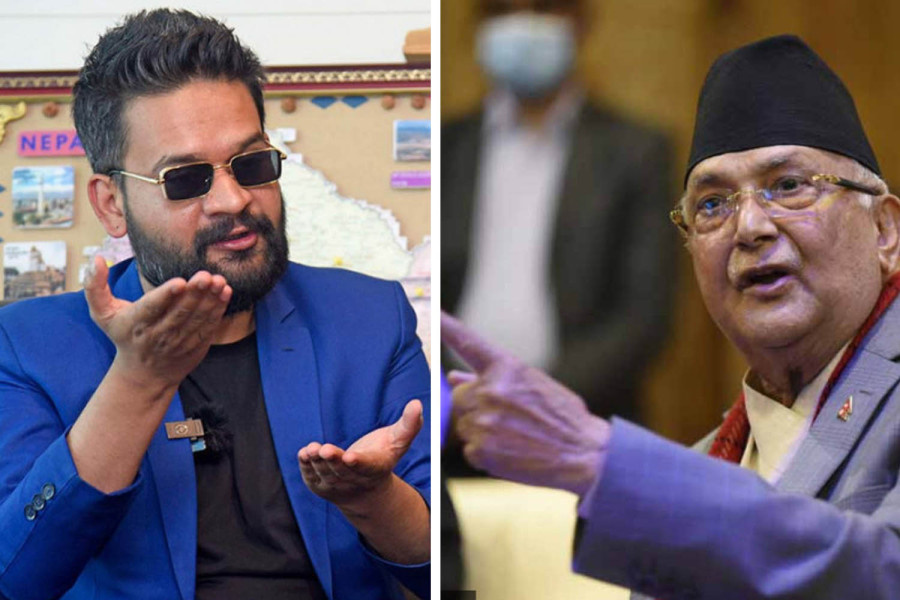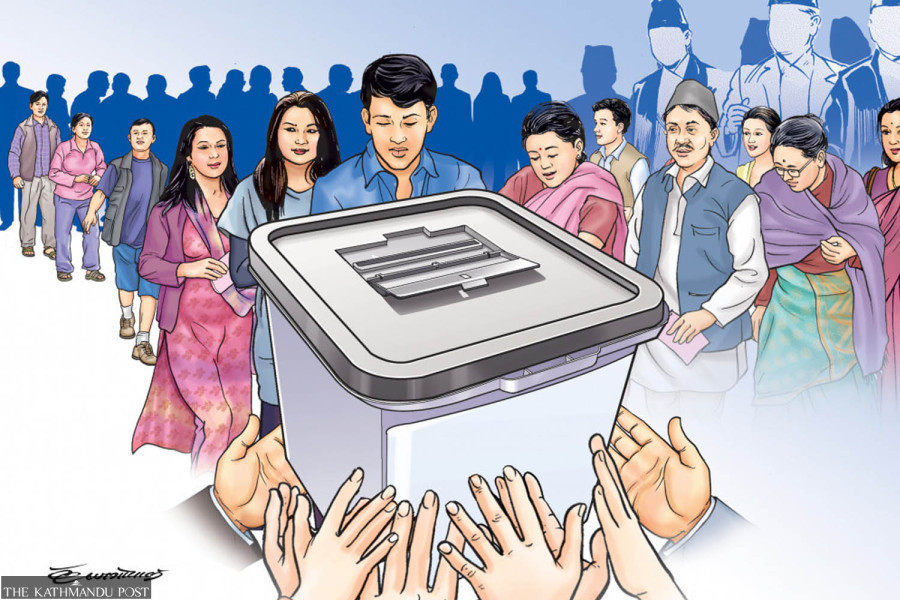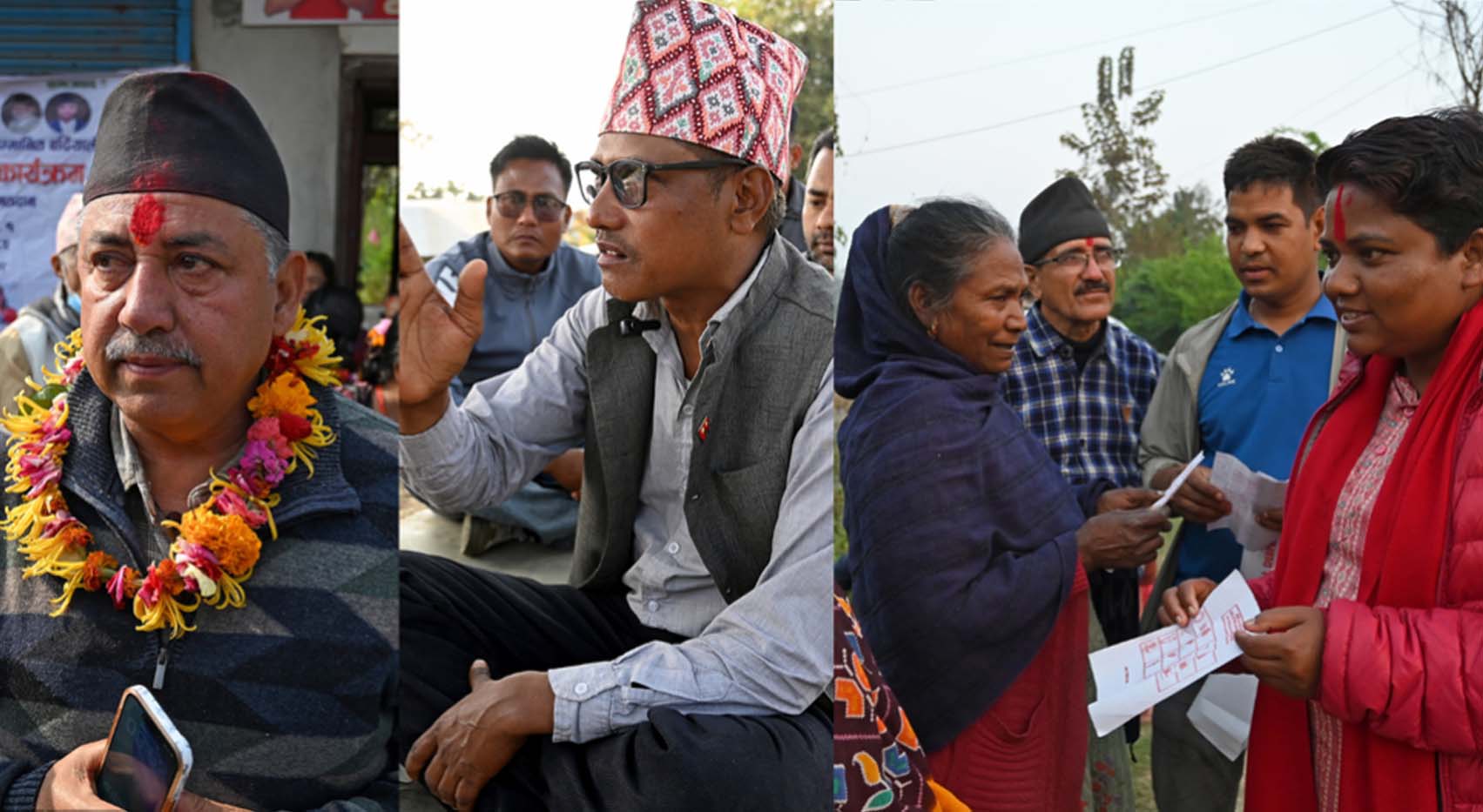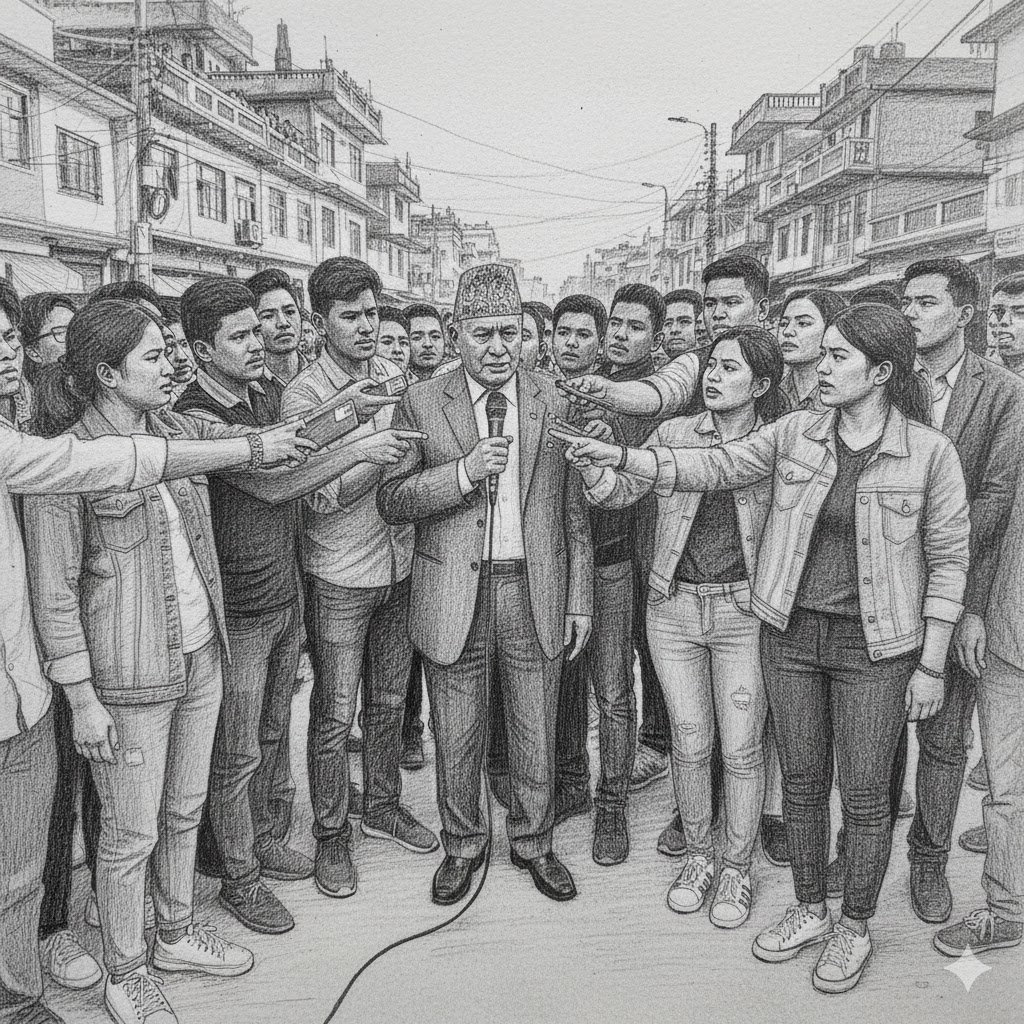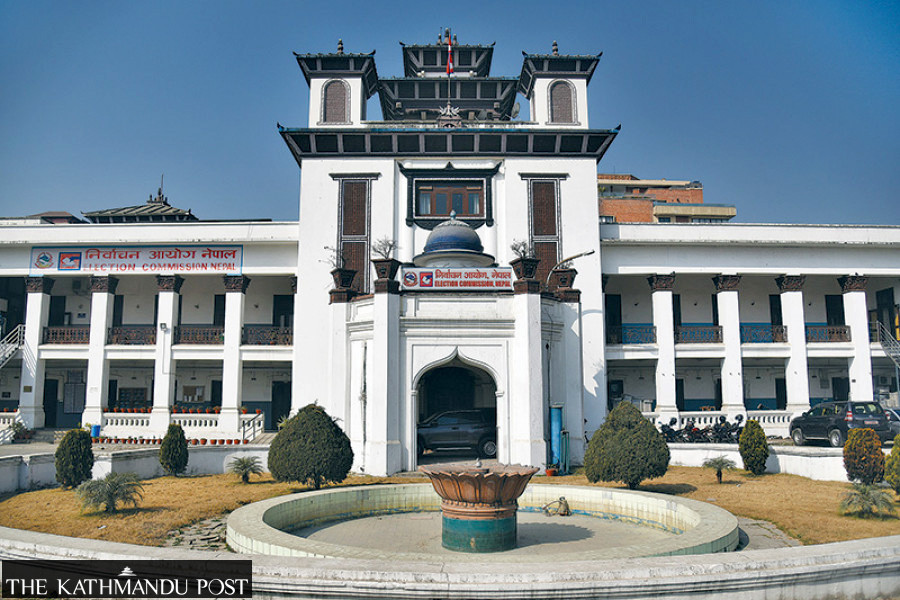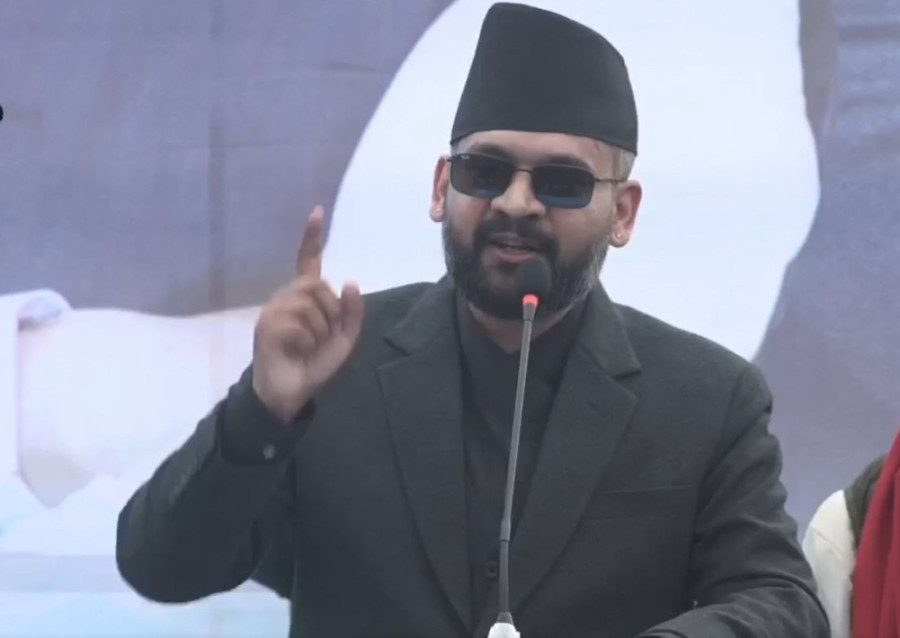Politics
Shackling of Resham Chaudhary shows how the state treats its citizens differently, rights defenders say
District court had convicted Chaudhary, who won the 2017 parliamentary elections from Kailali, of inciting the 2015 Tikapur violence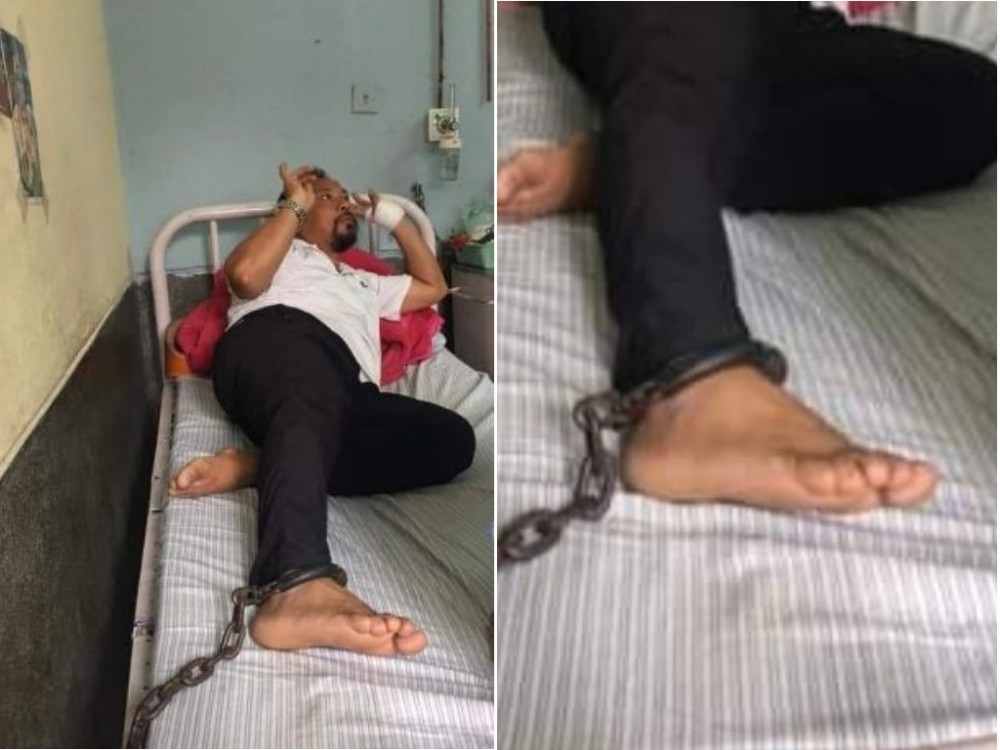
Tika R Pradhan
After reports and images surfaced on social media and newspapers showing Resham Chaudhary lying on a hospital bed, one of his legs shackled, Prime Minister KP Sharma Oli on Saturday swiftly directed the chief secretary to remove the chain.
Oli, according to his press coordinator Chetan Adhikary, also ordered action against the official responsible for restraining him even during treatment at Bir Hospital.
Chaudhary was convicted on March 6 of masterminding the 2015 Kailali incident, in which nine people were killed during a violent scuffle between the Tharus and security personnel.
Oli’s orders could have been prompted largely by comments on social media, where many accused his administration of failing to uphold human rights.
Almost a year and a half before his conviction by the Kailali District Court, Chaudhary had won the parliamentary elections in 2017 on the Rastriya Janata Party-Nepal ticket. The party had fielded him even as he was in hiding.
On January 3, he was sworn in as a lawmaker and sent back to Dillibazaar Prison.
While Chaudhary is convicted by the court, rights defenders and political analysts say the way authorities--particularly the police administration-- have treated him at hospital shows the true character of the current regime.
“How would the world perceive Nepal and our government?” said Gauri Pradhan, a human rights activist and a former member of the National Human Rights Commission.
Political analysts for long have said the country’s establishment has always held a strong prejudice against Chaudhary--a member of the Tharu community. “Even a criminal has his human rights. He is a political leader,” said Pradhan. “It reminds us of the Panchayat days when politicians used to be tortured.”
The court order came just as the government kept--and continues to keep--a report prepared by a commission led by Girish Chandra Lal under wraps.
Chaudhary’s Rastriya Janata Party-Nepal maintains that the Tikapur incident happened during a political movement and that it should have been treated politically.
Following House obstructions by the party, Speaker Krishna Bahadur Mahara on March 13 issued a ruling to the government to make the report public.
But the government hasn’t released the report yet.
“Without making the Lal commission report public, both the political and judicial cases of Chaudhary will linger,” said CK Lal, a political analyst. “Now the government has handed over Chaudhary to one of the parties [police] involved in the [Tikapur] conflict. How is it justified?”
Tikapur incident occurred in August 2015 in the lead up to the constitution promulgation, and was part of a series of protests that Madhesis and Tharus had organised for months in the biggest show of strength in recent times, saying that the provisions that were being incorporated marginalised some sections of the society.
According to Human Rights Watch, around 45 people were killed in violent protests. But no one responsible for committing the atrocities has been held to account till date.
“Rather, the government refuses to make the Girish Chandra Lal commission report public,” said Lal.
Exactly a year after the promulgation of the constitution, then coalition government of the Nepali Congress and the CPN (Maoist Centre) had reached a three-point agreement with the agitating Madhesi parties and formed the probe commission on September 18, 2016 accordingly.
The commission submitted its report to then prime minister Sher Bahadur Deuba on December 15, 2018.
According to the report, 66 people, including 10 police personnel, an 18-month-old child, four-year-old Samman Patel, and 15-year-old Nitu Yadav, were killed during the movement. Of them, 62 people, including police officials, were declared martyrs, while four had not been conferred the status.
The National Human Rights Commission has said it would look into the matter of Chaudhary being chained on hospital bed on Sunday, but many say the issue shows how Kathmandu’s political class treats citizens differently.
Mahantha Thakur of the Rastriya Janata Party-Nepal said the extreme mindset of the rulers in Kathmandu towards Madhes, Tharus, and indigenous people is yet to change even after repeated protests and movements.
According to Lal, Chaudhary is under administrative prison, and judicial and political process of the case related to him is still ongoing.
“It’s a shame that the prime minister keeps on reiterating that he was jailed for 14 years for his political agenda,” Lal said. “But Chaudhary is not recognised as a politician.”




 8.22°C Kathmandu
8.22°C Kathmandu
